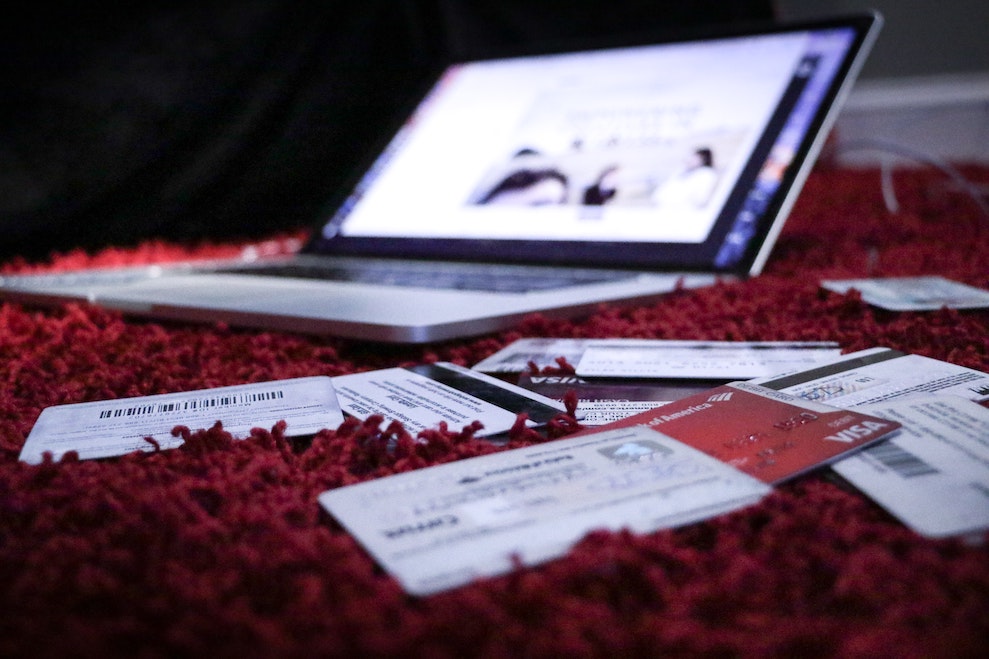Getting your first credit card? Here are some must-knows
June 3, 2024Congratulations on your new milestone – being financially ready to apply for a credit card! While you’re embarking on this new form of financial freedom, it is also important to practice prudent spending. One way to have a healthy credit card lifestyle is by getting the right card for your needs and practising good credit habits from the get go. Read on to get some tips for a credit card experience that’s exciting and healthy.
Choosing the right credit card

Having good credit card behaviour early is important – this means ensuring that your first card is the right one for you. Do spend some time researching different credit card options and the benefits they can provide before making your decision. To help you along your credit card comparison adventure, we’ve put together a few factors you can look out for:
1. Rewards and incentives
Ah, getting rewarded for spending – what’s not to like? Credit cards bring with it a wide range of benefits, with some of the best credit cards offering perks that make the fees worth it. Credit Cards can offer perks such as 1.5% cashback on eligible spending with no cap and no minimum spend, airline miles, or points that you can redeem for cash, discounts or merchandise.
2. Interest rates
This refers to the accrued amount that you would need to pay on your credit card’s unpaid balance. In Singapore, interest rates for credit cards can go up to about 26.9%, which means that your debt can snowball significantly if you don’t make payments quickly. If you think that paying the minimum sum of your outstanding balance will help you in the long run, think again – due to the compounding interest, your total bill can grow very quickly.
3. Annual rates and fees
Credit cards may come with other fees and charges, such as annual fees, card replacement fees and withdrawal fees. Do review the fine print carefully before applying – some credit cards do not charge annual fees, and some do not charge until your second year of being a cardmember. This doesn’t mean that a credit card with zero annual fees is the best option; you will have to decide if the benefits outweigh the fees. For example, will you get more in cashback than the annual fees you pay? Are incentives for charging your annual wanderlust adventure to your credit card worth more than the fees?
Building & maintaining good credit

Once you receive your credit card, the next step is to build up a robust credit strategy, and later, consistently ensure that you do not chalk up debt. Here are some tips:
1. Opt for automatic payments to settle your credit card bills
Doing this ensures that you will always pay on time as it would be directly debited from your bank account, provided you do not purchase any big-ticket items you can’t pay for in the short term. This, in turn, means that you will not have to pay interest. To set up autopay, reach out to your credit card issuer over the phone, or online.
2. Pay back more than the minimum as much as possible
When you receive your credit card bill, you will be given the option of just paying a minimum amount, which is usually 3% of the outstanding amount or S$50, whichever is higher. As aforementioned, as tempting as this is especially when you are low on cash, doing so can burn a hole in your pockets over time, due to the incurring interest. Always strive to pay back in full, or at the very least, more than the minimum sum.
3. Only buy what you know you can afford to pay back
It feels good to buy a Gucci bag, or that top-notch gaming laptop with the swipe of a card. But it may not feel so wonderful when the interest piles up, and you find yourself worrying about paying off your debt. Before you make a purchase, think about whether you can afford to pay for it within a set timeframe after factoring in your salary and monthly expenditure. If you ask, “why not do an instalment plan?” – after all, most credit cards offer a 0% instalment. 0% instalments means if the item is S$1,200, you will pay S$100 per month for 12 months. However, if you aren’t able to pay the monthly fees, you will still accrue interest on your credit card balance.
4. Avoid taking cash advances
The concept of getting instant cash from the bank when you are down on funds is extremely attractive, isn’t it? However, note that cash advances come with high fees and interest rates (oftentimes even higher than regular credit card interest rates!). Not to mention, if you are unable to pay for the cash advance, this will further add to your credit card balance and compounding interest. If you really require emergency funds, you may want to consider alternatives such as getting deferments on your bills, or a personal loan, where interest fees are typically lower.
5. Monitor your monthly statements
You will receive your credit card statement every month – don’t just toss it aside! This is a good way to track your spending, to make sure that you stayed within your budget and haven’t gone overboard with swiping! As credit cards are equipped for contactless payments i.e. payments made by “tapping” your card on the card terminal, one common myth is that this leads to cases of identity theft. With the layers of security, this is almost impossible. However, it is always good to check your monthly statements for any payment discrepancies, especially if you’ve allowed someone else to hold on to your credit card or have access to your credit card details especially those you save for mobile purchases. Better safe than sorry, right?
6. Check your credit score at least once a year
Your credit score is an indicator of how likely you are to repay your debts – by looking at your credit score, lenders can access if you are a good risk for them to take. After all, they wouldn’t want their borrowers defaulting on payments either! A good credit score can get you lower rates on loans you may want to take on in future. Or, it can put you in good stead to be approved for other cards you may want to apply for. To check your credit score, you can request for a copy of your credit file online at any Singapore Post branch, or the Credit Bureau Singapore. In general, remember these ground rules: pay off our bills on time, and don’t max out your credit limits!

Getting a credit card is exciting – it is a reflection of your increasing spending power, and your ability to treat yourself to little luxuries in life, and paying for it a little later. Just remember that owning a credit card is also a responsibility – one that you need to manage properly to ensure long-term happiness and convenience. While you’re spending, why not turn small everyday purchases into savings? Cashback credit cards like Standard Chartered’s Simply Cash Credit Card allows you to earn 1.5% cashback on all your spends, with no minimum spend and no cashback cap! It’s simple and convenient, and best of all – you save.
This article is brought to you by Standard Chartered Bank (Singapore) Limited. All information provided is for informational purposes only.





